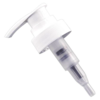Garnelaxia Accessories Water tests Drop tests JBL ProAquaTest Lab ProScape
JBL ProAquaTest Lab ProScape
In stock: 2
99.90 €
89.99 €
You save 10 %
including VAT, plus delivery
Available delivery methods: Vienna delivery by Garnelaxia, Pickup in Vienna 1050, Standard package for general articles, Thermal package for plants & products, Express package for shrimps, plants & products, Shipping aquarium with products, Combination package for invertebrates and Aquariums, World Zone 1: Standard package, World Zone 2: Standard package, World Zone 3: Standard package, Germany: Standard package, Germany: Thermal package for plants & products, Germany: Shipping of Nano Aquariums & products, European Union: Standard package, European Union: Thermal package for plants & products, European Union: Shipping of Nano Aquariums & products, European Union: UPS animal transport & products, Palettenversand, Deutschland: Palettenversand, UPS animal transport & products, Germany: UPS animal transport & products
Accessories
| Product | Note | Status | Price | |
|---|---|---|---|---|
|
|
5.20 € * | ||
|
|
7.60 € * | ||
|
|
13.10 € * | ||
|
|
16.90 € * | ||
|
|
10.50 € * | ||
|
|
9.30 € * | ||
|
|
10.70 € * | ||
|
|
5.95 € * | ||
|
|
5.10 € * | ||
|
|
2.40 € * | ||
|
*
Display accessory details
including VAT, plus delivery
|
||||
Customers who bought this product also bought
|
Aqua Rebell Mikro Basic Eisenvolldünger - 500ml
14.90 €
*
(100 ml = 2.98 €)
|
Soechting Oxygenator-lotion 6% - 1 liter
8.45 €
*
(100 ml = 0.85 €)
|
1 ml Dispenser pump
1.90 €
*
|
|
Aqua Rebell Makro Basic NPK - 1.000ml
21.90 €
*
(100 ml = 2.19 €)
|
JBL ProAquaTest GH General hardness
9.40 €
*
|
*
including VAT, plus delivery
Browse these categories as well: Drop tests, JBL Care









 JBL ProAquaTest pH 6.0-7.6 Refill
JBL ProAquaTest pH 6.0-7.6 Refill JBL ProAquaTest CO2 Direct Refill
JBL ProAquaTest CO2 Direct Refill JBL ProAquaTest Mg Magnesium Fresh water Refill
JBL ProAquaTest Mg Magnesium Fresh water Refill JBL ProAquaTest K Potassium Refill
JBL ProAquaTest K Potassium Refill JBL ProAquaTest Fe Iron Refill
JBL ProAquaTest Fe Iron Refill JBL ProAquaTest PO4 Phosphate sensitive Refill
JBL ProAquaTest PO4 Phosphate sensitive Refill JBL ProAquaTest NO3 Nitrate Refill
JBL ProAquaTest NO3 Nitrate Refill JBL ProAquaTest SiO2 Silicate Refill
JBL ProAquaTest SiO2 Silicate Refill JBL ProAquaTest KH Carbonate hardness Refill
JBL ProAquaTest KH Carbonate hardness Refill JBL ProAquaTest colour charts - spare part
JBL ProAquaTest colour charts - spare part


